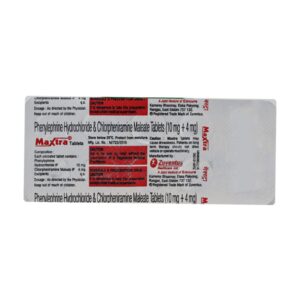Description
About Acivir Cream
Acivir Cream is primarily used to treat herpes simplex virus infections of the skin. It is used to treat genital herpes and herpes labialis/cold sores (herpes simplex virus infections of the lips and face).
Acivir Cream contains Aciclovir, which is an antiviral medicine. It works by killing and stopping the growth of the herpes simplex virus.
Acivir Cream is for external use only. Common side effects of Acivir Cream include dry/cracked lips, flaky skin, and temporary burning or stinging sensation. These side effects may not occur in every patient using this medication and gradually resolve over time. If the side effects persist longer or worsen, please seek a doctor’s advice.
Let your doctor know if you are allergic to any medications. Acivir Cream is not intended for use on the mucous membranes, in the eye or inside the mouth or nose. Avoid contact of the tip of the dispensing tube with the infected areas and other surfaces to prevent contamination. Pregnant and breastfeeding women should consult their doctor before starting Acivir Cream. This medicine should be used in children only when advised by a doctor.
Uses of Acivir Cream
Medicinal Benefits
Acivir Cream treats viral infections of the skin caused by the herpes simplex virus. It consists of Aciclovir, an antiviral drug. It works by killing and stopping the growth of the herpes simplex virus.
Directions for Use
Storage
Side Effects of Acivir Cream
- Dry/cracked lips
- Flaky skin
- Temporary burning or stinging sensation
Drug Warnings
Inform your doctor if you are using prescription or non-prescription drugs, and herbal products before starting Acivir Cream. Let your doctor know if you are allergic to Acivir Cream or its inactive components. Keep your doctor informed of your medical history before starting Acivir Cream. You are advised to take proper precautions if you are infected with herpes to prevent the spread of infection to others through sexual contact or body fluids. Pregnant women should consult their doctor before using Acivir Cream.
Drug Interactions
Drug-Drug Interaction: Keep your doctor informed about all the prescription and non-prescription medicines you take, including topical products, before starting Acivir Cream.
Drug-Food Interaction: No drug-food interactions were found.
Drug-Disease Interaction: Brief your doctor if you have a medical history of allergic reactions to medicines, liver or kidney diseases, or weakened immune system in cases like HIV infection, bone marrow transplant or cancer treatment before starting Acivir Cream.
Habit Forming
Diet & Lifestyle Advise
- Manage stress, eat healthily, drink plenty of water, exercise regularly, and get plenty of sleep.
- Eat foods rich in antioxidants, such as berries, spinach, kidney beans, dark chocolate, etc.
- Eat a healthy and balanced diet. Eat vitamin and nutrient-rich food such as dark green, yellow, orange, and red vegetables and fruits as it helps to boost your immune system.
- Opt for lean protein and whole grains.
- Practise safe sex by using condoms; it helps reduce contact with body fluids from an infected person.
- Never share personal items that can have your body fluids or blood on them, such as razor blades or toothbrushes.
- Avoid sharing used needles, other injection or drug equipment.
- Get tested for other sexually transmitted infections.
Disease/Condition Glossary
Herpes simplex infection: It is commonly known as herpes, a viral infection that causes contagious sores, often around the mouth or genitals. It is caused by the herpes simplex virus. There are two main types of herpes: herpes simplex virus/HSV-1 and HSV-2.
HSV-1 causes oral herpes/herpes labialis and can be transmitted through oral secretions or sores on the skin. It is also spread through kissing or sharing personal items like toothbrushes or eating utensils. Symptoms of HSV-1 include cold sores (fluid-filled lesions) or fever blisters around the mouth or on the face and a tingling or burning sensation.
HSV-2 causes genital herpes, which can be transmitted by direct contact with body fluids or sores/lesions of a herpes-infected individual. Genital herpes is a sexually transmitted infection, and its symptoms include herpetic sores (painful fluid-filled bumps) on the genitals or around the anus, pain, and itching or burning sensation.







Reviews
There are no reviews yet.